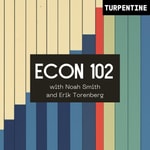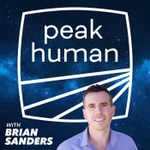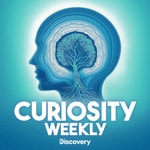On Humans – Détails, épisodes et analyse
Détails du podcast
Informations techniques et générales issues du flux RSS du podcast.

On Humans
Ilari Mäkelä
Fréquence : 1 épisode/12j. Total Éps: 85

Classements récents
Dernières positions dans les classements Apple Podcasts et Spotify.
Apple Podcasts
🇺🇸 États-Unis - science
20/07/2025#85🇺🇸 États-Unis - science
19/07/2025#51🇺🇸 États-Unis - science
18/07/2025#36🇺🇸 États-Unis - science
17/07/2025#24🇺🇸 États-Unis - science
16/07/2025#19🇺🇸 États-Unis - science
15/07/2025#18🇺🇸 États-Unis - science
14/07/2025#18🇺🇸 États-Unis - science
13/07/2025#18🇺🇸 États-Unis - science
12/07/2025#17🇨🇦 Canada - science
11/07/2025#65
Spotify
Aucun classement récent disponible
Liens partagés entre épisodes et podcasts
Liens présents dans les descriptions d'épisodes et autres podcasts les utilisant également.
See all- https://www.samharris.org/podcasts
31 partages
- https://www.chinatalk.media/
25 partages
- http://patreon.com/OnHumans%E2%81%A0
10 partages
- https://www.patreon.com/onhumans
9 partages
- https://patreon.com/onhumans
5 partages
Qualité et score du flux RSS
Évaluation technique de la qualité et de la structure du flux RSS.
See allScore global : 53%
Historique des publications
Répartition mensuelle des publications d'épisodes au fil des années.
What About China? Part II: Explaining the Chinese Miracle ~ Yasheng Huang
Saison 1 · Épisode 45
jeudi 19 septembre 2024 • Durée 01:05:57
China's rise has shook the world. It has changed the lives of over a billion people in China. It has flooded humanity with cheap goods, from single-use toys to high-tech solar panels. And it has changed the logic of war and peace in the 21st Century.
But how to explain China's dramatic rise? Was it due to the wisdom of China's leaders after Mao? Or was it all about foreign investors searching for cheap labor?
Both and neither, argues MIT professor Yasheng Huang. Yes, the Chinese leaders learned from the mistakes of Mao. And yes, foreign money made a difference.
But there is a hidden story behind China’s rise - a story which merits our attention. This is a story with deep roots in history, but with the main act being played in the Chinese countryside during 1980’s. It is also a drama whose characters have never recovered from the tragedy that took place on the streets around Tiananmen Square during a warm summer night in 1989.
This is part 2 of this 3-part mini-series "What About China", hosted by me, Ilari Mäkelä, together with ChinaTalk’s Jordan Schneider. Part 1 looked at China's deep history. Part 3 will look at China's present and future.
In this part 2, we sketch the story of China's rise, meeting many colorful characters and discussing fascinating themes, such as:
- How did Mao shape the direction of Chinese history?
- Why did China become richer than India?
- Why was 80's a golden era for liberal Chinese?
- How did the 1989 crackdown at Tiananmen square paved the way for China today?
MENTIONS
Modern scholars
Meijun Qian | Amartaya Sen | Branko Milanovic (ep. 32) | Zheng Wang (auth. Never Forget National Humiliation)
CCP Old Guard
Mao Zedong 毛泽东 | Deng Xiaoping 邓小平 | Xi Zhongxun 习仲勋 | Chen Yun 陈云 | Li Xiannian 李先念
CCP liberals of the 1980’s
Hu Yaobang 胡耀邦 | Zhao Ziyang 赵紫阳
CCP leaders after 1989
Jiang Zemin 江泽民 | Hu Jintao 胡锦涛 | Xi Jinping 习近平.
LINKS
You can read my essays and get the On Humans Newsletter at OnHumans.Substack.com.
Are you a long-term listener? Join the wonderful group of patrons at Patreon.com/OnHumans.
For other episodes on economic history, see my series on the Birth of Modern Prosperity, with Daron Acemoglu, Oded Galor, Brad DeLong, and Branko Milanovic.
What About China? Part I: The Deep Currents of Chinese History ~ Yasheng Huang
Saison 1 · Épisode 39
lundi 2 septembre 2024 • Durée 01:12:59
The West has ruled history — at least the way history has been written. This is a shame. To tell the story of humans, we must tell the story of us all.
So what about the rest? What themes and quirks does their history hide? And what forces, if anything, prevented them of matching Europe’s rise?
I aim to cover these topics for several countries and cultures over the next year. But I wanted to start with China. To do so, I’ve teamed up with Jordan Schneider, the host of ChinaTalk.
Our guest is MIT professor Yasheng Huang (黄亚生). Huang is the author of Rise and Fall of the EAST – one of my all-time favorite books on China’s past and present.
In this episode, we explore the deep currents shaping China’s history.
We trace the forces shaping China's early mastery of technology to its falling behind Europe in the modern era. We also discuss the surprising role that standardized exams have played in Chinese history, and why certain democratic elements in China’s past actually bolstered the emperor’s authority.
The episode covers all of Chinese imperial history, ending with a brief note on the early 20th Century. In part 2, will zoom into China’s economic miracle and its uncertain future.
NOTES
A Rough Timeline of Chinese history:
Pre–221 BCE: Disunity (e.g. Warring States)
221 BCE – 220: Unity (Qin & Han dynasties)
220 – 581: Disunity (“Han-Sui Interregnum”)
581 – 1911: Unity (Sui, Tang, Song, Yuan, Ming, and Qing Dynasties)
Historical figures
Emperor Wanli 萬曆帝 | Shen Kuo 沈括 (polymath) | Zhu Xi 朱熹 (classical philosopher) | Hong Xiuquan 洪秀全 (leader of the Taiping Rebellion) | Yuan Shikai 袁世凯 (military leader) | Chiang Kai-shek 蔣介石 (military leader and statesman)
Modern scholars
Ping-ti Ho 何炳棣 (historian) | Clair Yang (economist) | Joseph Needham (scientist and historian) | Daron Acemoglu | James Robinson
Historical terms
Kējǔ civil service exams | Taiping Rebellion
References
For more links and some impressive graphs, see this article at OnHumans.Substack.com.
LINKS
Are you a long-term listener? Join the wonderful group of patrons at Patreon.com/OnHumans.
For other episodes on economic history, see my series on the Birth of Modern Prosperity, with Daron Acemoglu, Oded Galor, Brad DeLong, and Branko Milanovic.
Did Humans Evolve In Small Groups? ~ Cecilia Padilla-Iglesias
Saison 1 · Épisode 39
mardi 16 avril 2024 • Durée 48:21
Modern cities are unique. Never before have so many people lived so close to each other. But just how unique is our modern cosmopolitanism?
Completely unique, says a traditional theory.
Humans evolved in tiny groups. These groups were not only smaller than modern cities. They were smaller than medieval towns. Indeed, hunter-gatherers often move in bands of 25 people or so. These bands might draw people from a "meta-group" of 150 people — but not more. And so, 150 people is the "maxiimum" group size natural for humans. Or so the theory goes.
My guest today thinks that this is wrong.
Cecilia Padilla-Iglesias is an evolutionary ecologist who studies hunter-gatherer societies. And her work points to a very different conclusion. Yes, hunter-gatherers spend much of their time in small bands. But these bands can form much larger groups of connections, extending further and further away, even to areas with different languages. Even in the rainforest, cosmopolitanism is the norm.
So what do hunter-gatherer societies look like? And are they really good models of our deep past? We discuss these and other topics in this episode, touching upon topics such as:
(04:00) Living with hunter-gatherers
(10:30) Fluid societies
(14:20) Dunbar’s mistake
(17:20) Dawkins’ mistake
(21:20) Ancient DNA of hunter-gatherers
(23:20) What made H. Sapiens special?
(25:40) Mobility, diversity, and technology
(28:20) Sympathy and xenophobia
(34:00) Ancient DNA (again)
(41:30) Jungle cosmopolitanism
(43:40) Was agriculture a mistake?
As always, we end with my guest's reflections on humanity.
LINKS
Want to support the show? Checkout Patreon.com/OnHumans
Want to read and not just listen? Get the newsletter on OnHumans.Substack.com
MENTIONS
Names: Richard Dawkins, Kim Hill, David Reich, Andrea Migliano
Books: God Delusion (Dawkins), Who We Are And How We Got Here (Reich), The Human Swarm (Moffett)
Ethnic groups: Bayaka (Congo), Hadza (Tanzania), Ache (Paraguay), Agta (Philippines)
Articles: For links to articles, see OnHumans.Substack.com/p/Links-for-Episode-39-Hunter-Gatherer
Can We Understand Infinity? ~ Adrian Moore
Saison 1 · Épisode 38
lundi 25 mars 2024 • Durée 01:17:31
Infinity is a puzzling idea. Even young children ponder its various manifestations: What is the biggest number? Does the universe have an edge? Does time have a beginning?
Philosophers have tried to answer these questions since time immemorial. More recently, they have been joined by scientists and mathematicians.
So what have we learned? Can we finally understand infinity? And what has this quest taught us about ourselves?
To explore this topic, I am joined by philosopher Adrian W. Moore.
Professor Moore is a special guest for two reasons. First, he is a world expert on infinity, known for an excellent BBC series, "History of the Infinite". More personally, he is the head tutor of Philosophy at St Hugh’s College, Oxford, where I studied my BA in Philosophy and Psychology. It has now been ten years since Prof Moore interviewed me and, for whatever reason, accepted me as a student. I feel honoured to mark the occasion with this episode.
In this episode, we discuss:
(02:35) Why infinity fascinates
(12:20) Greeks on infinity
(20:05) A finite cosmos?
(25:00) Zeno’s paradoxes
(32:35) Answering Zeno
(42:35) Measuring infinities? Georg Cantor
(54:05) Infinity vs human understanding
(66:20) Mystics on infinity
As always, we finish with Prof Moore’s reflections on humanity.
LINKS
Want to support the show? Checkout Patreon.com/OnHumans
Want to read and not just listen? Get the newsletter on OnHumans.Substack.com
MENTIONS
Names: Aristotle; Zeno; Archytus; Ludwig Wittgenstein; Kurt Gödel; Alan Turing; Georg Cantor; William Blake; Immanuel Kant
Terms: Pythagoreans; Zeno’s paradoxes; calculus; transfinite arithmetic; counting numbers, i.e. positive integers; absolute infinities, or inconsistent totalities
Books: The Infinite (Moore)
Other scholarship: For games on infinite boards, see e.g. the work of Davide Leonessi: https://leonessi.org/
How Did Humans Evolve? Why Did We? ~ Ian Tattersall
Saison 1 · Épisode 37
mardi 12 mars 2024 • Durée 01:09:37
Why are we furless? Why do we cook our food and use spoken language? And how does climate change, sashimi, or the banks of Central America relate to human origins?
Human evolution is a deeply puzzling topic. But behind this dense mist lies many keys to our self-understanding. To guide us through the foggy territory, I am joined by Dr Ian Tattersall, a curator emeritus at the American Museum of Natural History (New York).
In this episode, Dr Tattersall and I discuss:
(04.00) An ancient climate change
(07:20) First humans
(11:20) Fire
(17:50) Fish
(21:40) Rocks
(24:00) Evolution vs Innovation
(25:30) Brain growth
(36:10) Children
(39:50) Language
(48:20) Why?
As always, we finish with Dr Tattersall's reflections on humanity.
LINKS
Want to support the show? Checkout Patreon.com/OnHumans
Want to read and not just listen? Get the newsletter on OnHumans.Substack.com
MENTIONS
Names: Richard Wrangham (see ep. 21), Susan Schaller, Ildefonso, Jane Goodall, Sarah Blaffer Hrdy, Yuval Noah Harari
Books: Masters of the Planet (Tattersall), Man Without Words (Schaller), Sapiens (Harari)
Technical terms: Oldowan tool culture (first stone tools, c. 2.5 million years ago), Acheulean hand axe (first major update in stone tools, c. 1.6 million years ago)
Fossils: Lucy (3.2 million years old); Turkana Boy (aka. Nariokotome Boy, 1.6 million years old)
Hominin species: Australopithecines, Homo ergaster, Homo erectus, Homo heidelbergensis, Homo neanderthalensis, Homo sapiens
A note on hominin taxonomy: Homo habilis was traditionally considered the first human and the first maker of stone tools. Dr Tattersall is among the many critics of this old idea. According to him and many others, there is no separate tool-making species called Homo habilis. Rather, Australopithecines started making stone tools without any change in the biology of the species. Also, it is worth noting that Dr Tattersall rejects the traditional view which gives a big role for Homo erectus in the human story. In this traditional view, Turkana Boy’s species, Homo ergaster, is called an African Homo erectus. Dr Tattersall and many others argue that this is a historic hangover with little basis in the biological evidence.
How Did Consciousness Evolve? Did It? ~ Eva Jablonka
Saison 1 · Épisode 36
mercredi 14 février 2024 • Durée 55:14
We are conscious creatures. But why? Why did consciousness evolve? Can we use biology to explain the origins of feeling and meaning? Or will consciousness forever escape the grip of the scientific method?
Eva Jablonka has thought hard about these issues. An eminent evolutionary biologist, she became famous for her pioneering work on epigenetic inheritance. More recently, she has produced very original work on the evolution of consciousness with her colleague, neuroscientist Simona Ginsburg. So invited him on the show to discuss the evolution of consciousness, or what she beautifully calls "the sensitive soul".
In this episode, we discuss themes such as:
(03:00) What is consciousness?
(10:45) Four links between evolution and consciousness
(27:30) Are robots conscious? Consciousness and vulnerability
(30:45) Which animals are conscious? Consciousness and the Cambrian Explosion.
(34:30) Can science fully explain consciousness?
(48:00) The future of consciousness
As always, we end with Jablonka’s reflections on humanity.
LINKS
Want to support the show? Checkout Patreon.com/OnHumans
Want to read and not just listen? Get the newsletter on OnHumans.Substack.com
MENTIONS
Books: Evolution of the Sensitive Soul, Picturing the Mind (both my Eva Jablonka & Simona Ginsburg)
Terms: Sensitive soul, phenomenal consciousness, intentionality (i.e. "aboutness"), the Cambrian explosion, cephalopods, anthropods, vertebrates
Names: Aristotle, Simona Ginsburg, Jonathan Birch, Antonio Damasio
Why Do We Love? ~ Arthur Aron
Saison 3 · Épisode 35
jeudi 1 février 2024 • Durée 38:53
Why do we love? What brings us together? How to heal ethnic hatred?
According to my guest, the answer to all these questions lies in the human desire to grow ourselves through connecting with others.
Arthur Aron is a psychologist who studies human bonding in all its forms. A pioneer in the field, he has studied topics from connecting with strangers to maintaining romance in life-long marriages. And many of his findings are ultimately hopeful.
In this conversation, we discuss topics such as:
(4:30) Why we love
(12:50) Tools to cultivate love
(24:30) Friendships with the ethnic "other”
(31:30) Are we naturally xenophobic?
MENTIONS
Names: Elaine Aron, Helen Fisher, Stephen Wright
Articles: For links to videos, articles, and the 36 Questions, see https://onhumans.substack.com/p/links-for-episode-35
MORE LINKS
Read the On Humans newsletter at OnHumans.Substack.com
Support On Humans at Patreon.com/OnHumans
Mental Health Bonus | The Origins of ADHD, Anxiety, and Depression ~ Nikhil Chaudhary
mardi 23 janvier 2024 • Durée 14:28
Can evolution shed light on our mental health?
Nikhil Chaudhary thinks so. He is an anthropologist at the University of Cambridge who specialises in the links between evolution and psychiatry. In this clip, Dr Chaudhary explores the evolutionary origins of ADHD, depression, and anxiety.
For our longer conversation on parenting and family life, see episode 34 of the On Humans Podcast.
Family Lessons From Hunter-Gatherers ~ Nikhil Chaudhary
Saison 1 · Épisode 34
lundi 15 janvier 2024 • Durée 01:04:59
We expect a lot from parents, especially from mothers. “Maternal instincts” are such, we are told, that mothers should gain almost literal superpowers from the joy of parenting.
Unfortunately, many parents face a different reality. Having children can be one of the most stressful times of life, amplified by feelings of guilt and inadequacy.
Why is this? Is this an inevitable part of the human condition? Or is the fault in our modern society? And how would we know the answer?
To address these questions, anthropologists have started comparing family lives in industrial societies with those of the last remaining hunter-gatherers.
Nikhil Chaudhary is one such anthropologist. A researcher at the University of Cambridge, he recently co-authored a remarkable paper on what we have learned about the family lives of hunter-gatherers. I invited him on the show to discuss the findings and their implications.
So what is family life like amongst hunter-gatherers? Chaudhary's research paints a fascinating picture. Indeed, industrial societies can learn a lot from them. But not everything is easy for them, either.
In addition to parenting, our conversation touched upon themes from monogamy and polyamory to parental grief, health spending, and the stark contrast between human and chimpanzee mothers.
MORE RESOURCES
If you enjoy our conversation and want to learn more about hunter-gatherer studies, see episode 14 with Vivek Venkataraman. For more information on the anthropology of monogamy and beyond, see episode 11 with Helen Fisher.
For written content on this and other conversations, subscribe to the newsletter at OnHumans.Substack.com.
MENTIONS
Names: Sarah Blaffer Hrdy (see upcoming episode this spring), Richard Wrangham (see episode 21), Alan Watts
Terms: Partible paternity, alloparenting, post-partum depression, the continuum concept, NHS (UK’s National Health Services), human self-domestication (see episode 21)
Ethnic groups: BaYaka (both the Mbendjele in Congo and the Aka in CAR), Ache (in Paraguay), Hadza (in Tanzania), Agta (in the Philippines), Bantu peoples (the major ethnolinguistic group in most southern African countries)
Articles: For links to articles mentioned in this conversation, see https://onhumans.substack.com/p/links-for-episode-34
SUPPORT
You can support the On Humans podcast by becoming a member at Patreon.com/OnHumans
Encore | This Conversation Touched The Most Hearts in 2023 ~ Helen Fisher
dimanche 7 janvier 2024 • Durée 01:38:01
Happy New Year 2024!
To celebrate the new year, Spotify sent me a bunch of data points about 2023. I was particularly interested in one question: which conversation moved people the most? I already knew which episode people played the most. (That's episode 17 with Bernardo Kastrup.) But to listen is one thing. To share with friends and family is another.
The most shared episode was my conversation with Helen Fisher, titled "A Cultural Biology of Sex, Love, and Monogamy". It was one of my favourite conversations, too. Fisher offered a sweeping take on romantic love, combining fascinating anthropology with practical tips about maintaining passion in relationships. She even convinced my parents to re-design their TV arrangement...
Perhaps it deserves one more share. So here you go!
___
ORIGINAL SHOW NOTES
Why do we love? And how much does our culture shape the way we do so?
In this episode, Ilari talks with Helen Fisher about the powers that drive and shape our romantic relationships. Ilari and Professor Fisher discuss:
- Is romantic love a modern invention?
- Is monogamy a social invention?
- Do men care more about sex? Do women care more about romance?
- Why agriculture, especially with the plough, caused havoc in romantic relationships.
- Why divorces might be on the decline.
- A science-based guide for maintaining romantic relations (based on couples who are still in love after 25 years)
- Why (certain) antidepressants can kill the sex drive and blunt romantic love (to read more, see the end of the notes)
- How common is polygamy or polyandry? Where in the world do we find most "free love"?
- Why did homosexuality evolve?
Names mentioned
- Irenäus Eibl-Eibesfeldt (as recounted by Alison Gopnik in her The Gardener and the Carpenter)
- Bill Jankowiak
- Robert Sternberg (see episode 7)
- Anderson Thompson
- Bertrand Russell
Technical terms and ethnic groups mentioned
- Ventral tegmental area VTA
- Hypothalamus
- Dopamine, testosterone, oxytocin, vasopressin, serotonine
- Monogamy (serial or lifelong; social or biological)
- Polygamy (several wives) and polyandry (several husbands)
- Tlingit (the polyandrous Inuit society with wealthy women)
- Oneida community (in New York State)
Dig Deeper
Antidepressants: To read more about the possible effects of SSRIs on sex drive and romantic love, see Tocco and Brumbaugh (2019). Below is a list of possible alternatives or complements to SSRIs (please consult with your doctor in all matters related to pharmaceuticals):
- Fisher herself suggested that SNRIs could be less risky than SSRIs. Theoretically, dopamine reuptake inhibitors, such as bupropion, could also counter the risks associated with SSRIs (for a review, see Zisook et al. 2006).
- For alternative or complementary oral treatments of depression, see research on supplementation with a high dosage of Omega 3 (EPA and DHA, not ALA) (for a review, see Bhat & Ara 2015).
Polyamory: In the episode, Professor Fisher suggests that many Amazonian tribes have informal polyandry, i.e. women have many partners, albeit only one formal husband. However, there are non-academic sources suggesting that formalised polyandry is common in the Zo’é community in Amazon. For some of these photos of Zo’é and other Amazonian tribes, many of whom exhibit remarkably liberal attitudes to sex, see the recent Amazonia exhibition in the London Science Museum.









